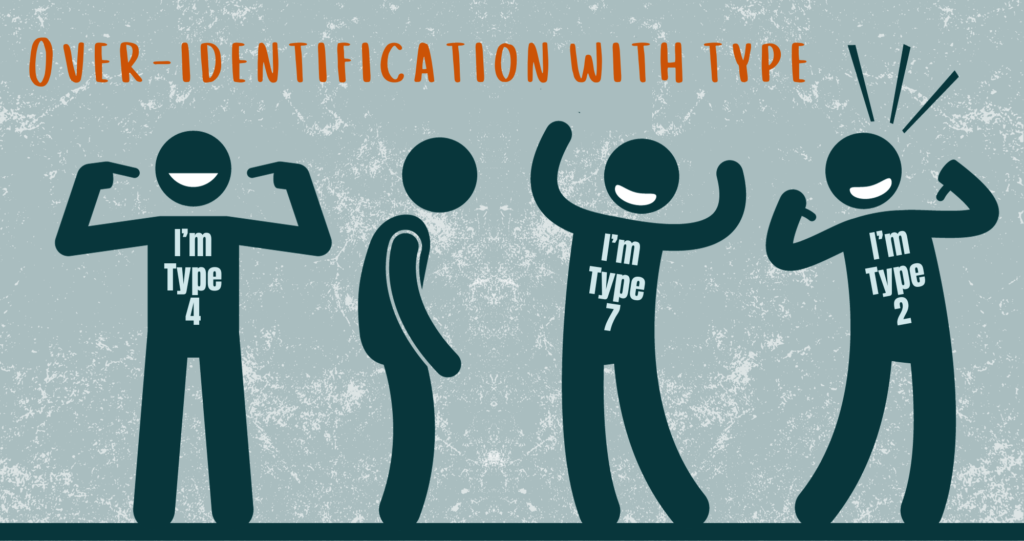On request from the recent Shift network Global Enneagram Summit, I did a session on the importance of not identifying with our Enneagram type. To me, the dangers of identifying with type seemed obvious, and I reflected on what might be useful for me to say. The words flowed out quite easily, so I thought I’d share some of them here. As the Enneagram is currently expanding exponentially, this topic is both urgent and timely.
The quest for “Who Am I?”
The quest for the answer to “Who Am I” is nothing new, but it may be increasing with the increasing uncertainty in the world: pandemic and post-pandemic experiences; job changes and job insecurity; political divisiveness and turmoil; violence and its traumatic aftermath; racism, antisemitism, hate crimes against groups with “marginalized” status; and more. Even without all these factors, the search for answers to “Who Am I” can be endless and daunting.
Here is the issue or trap with the Enneagram. Our Enneagram type is not an answer to who we are. It has been said your type may be who you think you are, but, in a deeper sense, it is really who you are not. However, when people learn the enneagram and identify their type, they can easily fall into the trap of “Oh finally, this is who I am. I am a type X.”
If people treat their Enneagram type in this way, identifying with it as if this is who they are, then they get stuck in their type. When we are stuck in our type, and overidentifying with it is just one way we can get stuck, our growth becomes thwarted. And as trainers, coaches and authors, if we intentionally or unintentionally collude with this tendency to over-identify with type, we are really neither serving the person or the Enneagram. For example, if we primarily emphasize the positive qualities of each type and minimize the developmental aspects, people often start to like their type so much that there’s minimal motivation for working on their deeper development areas.
So my question to everyone who teaches the Enneagram, and to myself, is to continuously ask whether or not the way we teach types supports discovering type but not identifying with it or if we are unintentionally reinforcing overidentification.
The search for belonging
Belonging is a longing almost everyone has, at least to some extent. This is, in a sense, part of the social instinct we all have as humans. The further we have moved away from tribes as communities to which we belong, the more family systems are separated, and the more people become geographically dispersed from their social systems and communities, the need to belong becomes heightened.
Here is the issue or trap with the Enneagram. People can start to identify strongly with their type (and others of their same type) as a tribe or community to which they belong. Finally, they belong to something. Enneagram trainings, programs, and schools can unintentionally reinforce this sense of type-based or even Enneagram-wide community. Although Enneagram groupings often serve as a way to satisfy the deeply felt need to belong, this way of belonging can encourage overidentifying with type. Just as examples, consider type group discussions – which are enlightening – that make people feel deeply understood for perhaps the first time ever. This is a central part of Enneagram work, but it can lead people to think their type group (or their Enneagram community) is the place they feel they belong. They may start to believe theirs is the best type or their Enneagram community is the best community. When this occurs, development is obstructed. To grow and transform is in some ways akin to leaving the group or community to which they belong behind. To grow or to belong?
Again, my question to others and myself is to what extent do I/we foster overidentification with type, albeit unintentionally in most cases, by overemphasizing the sense of belonging to something important? How do we help those we teach identify their Enneagram type without over-identifying with it?
Ginger Lapid-Bogda PhD, author of nine Enneagram books, is a speaker, consultant, trainer, and coach. She provides certification programs and training tools for business professionals around the world who want to bring the Enneagram into organizations with high-impact business applications. TheEnneagramInBusiness.com | ginger@theenneagraminbusiness.com


Comments are closed.